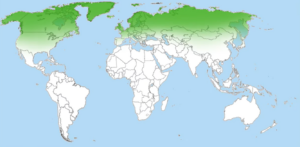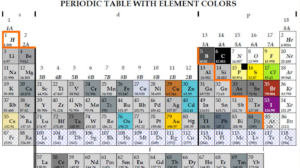Praise be to God! There is no other god except God. A lot of people when they initially start to read the Quran, or during the early stages when they have read it a few times, they will sometimes be interested about a certain issue, and they will start to get this feeling that the Quran is unclear about those issues. And very often they assume that they are not able to understand it because of language barriers. So they think to themselves, if only I could understand Arabic, then I would be able to understand exactly what the Quran is saying here about this issue. What they don’t realize is that the perception of unclarity comes from language barriers only in about 5% of the cases. But, they are not aware of this, so they start to check different translations, and then they see that the translators have translated the same verse in so many different ways, and then this start to be a source of doubt for them. But again the reality is that, even when the translations are different, usually all of them are correct in that issue. They just capture a different aspect of that verse. For example, let’s say that the Arabic Quran said, “Take your vehicle when you travel to faraway places”. Now let’s say that the Arabic language has the word vehicle, but the English language does not have it. Now, one translator will say, “Take your car, if he is from U.S.”, The other translator might say “Take your bike, if he is from India”, or the other one might say, “Take the bus”, if he is from London. And all of them are right. Just because on translator said, “Take the bus.”, it does not exclude the other translators from being correct, when they say take the car. After all, the word, “vehicle” includes buses and cars, and motorbikes, and trains, and so on. So, all of the translators are almost always right. But, anyway, when the person doesn’t understand the Arabic directly, it is easy for him or her to conclude that the uncertainty comes from the language barrier, but usually the language barrier is only about 5% of the cases of apparent unclarity. 95% of the apparent unclarity comes from other reasons, and the biggest one of them, about 40% of it, is intentional.
And here is what we mean by that: In other books, which are not the Quran, you can find important information which are clear, or unimportant information which are not clear, or clear information which are not important, or unclear information which are important. All these combinations can not happen in the Quran. The Quran is the only book in the world, where everything which is clear is always important, and everything which is unclear is always unimportant. So, every unclear thing in the Quran is always unimportant, and every unimportant thing in the Quran is always unclear. You can not find anything in the Quran which should be important which is unclear, and you can not fund anything in the Quran which is clear, which is unimportant. So, in the Quran, clarity and importance are the same thing. Now, if you want to know something from the Quran which seems unclear, first of all you need to know that it’s not important. It’s your problem if you think that it is important, but it’s not. For example, let’s say that you want to know whether you should enter the mosque with your right foot first or with your left foot first. You will not be able find it in the Quran clearly, and that’s because it is not important. Had it been important, it would have been clear in the Quran. So, the less important an issue is, the less clear it seems, and the less clear it seems, the more people come with many different versions of it, and then the ignorant people insist on one version, and then they cause debates and arguing with one another, and that’s how ignorant people when they are allowed to elevate the unimportant topics cause divisions. See, the difference between an ignorant submitter and a smart submitter is not the amount of information which they have. Because even ignorant people can absorb as much information as smart people. However, the difference between ignorant submitters and wise submitters is that ignorant submitters don’t know which information is important and which is not, so, they consider all information as equally important, and they end up elevating the unimportant issues to the same level of importance as the important ones, and then they want to find the answer. Obviously there are intentionally no clear answers to those questions in the Quran to tell us that it’s not important, but they want to know. If you want to know, get a philosophy degree or whatever. We are not here to know. We are here to serve. Adam and Eve wanted to know, and they ate from the tree of knowledge, and look where it brought us. We are not here to know. We are here to serve God, and the knowledge comes as a byproduct. It’s not our main aim. Our aim is to serve God, and knowledge is just a byproduct. All those who think that religion is about knowing, they rarely understand anything. The ones who are willing to serve, they get to know what the others wanted to know, and much more. Nothing will be left unexplained anyway. Those who want to know ask the questions, but those who want to serve get the answers. Nothing we need to know will be left unanswered, anyway. Nothing which we needed to know so far has ever remained unanswered, but we should be willing to serve first. So, again, the apparent unclarity in the Quran is intentional to tell us which issues are unimportant.
So, again, only about 5% of the apparent unclarity comes from language barriers, while about 40% of it is intentional to emphasize to us that a certain issue is unimportant.
Now, another 30% of the apparent unclarity comes from our own sins. Here is how: For example, let’s say that a general of an army sends you in a secret mission and tells you to go and send a bag to a certain soldier by tomorrow the latest, and he also give you a letter, and tells you that you will have there all the instructions you need to know in any circumstance you might find yourself in. Now, you don’t quite do it like that, for example. You think that it’s ok if you rest a little bit midway, and then when you go there, you are one 12 hours late, and that soldier is gone, because you were late. Now, you check your letter with instructions, and you don’t find anything which tells you what to do now. Now, you are really confused, because you don’t know if you should wait to see if the soldier might come back. Should you go further? Should you go back? None of that is answered in that letter, even though the general told you that you will have all the answers there. Well, the letter tells you all the answers, if you followed the initial instructions of the general to reach there by tomorrow the latest. And in a similar way, when people commit sins, whether they did them yesterday, a month ago, a year ago, 10 years ago, or 20 years ago, those sins trap you in situations for which you can not find an answer in the Quran. And many people are stuck in state of questioning for the rest of their lives, with questions like, “Until which date after conception does it count as abortion or not?” You hear this question in the news, for example. Well, the instructions were not to commit adultery in the first place. So, the fact that you don’t find a clear answer for what counts as abortion or not is because of your own sins. So, God made it unclear on purpose, so that you will not find the clear answer until you atone for that sin. It is possible to know, but it is not directly clear. The way it works is that while you are in deep trouble seeking an answer for such a situation, you are wasting your time, and missing other opportunities, and as a result you are indirectly paying for your sin, and when you pay for your sin, then you get the clear answer, in whatever way, maybe after too many difficulties searching for it, maybe you got the answer from this website, but you wouldn’t find this website, if you didn’t go through those difficulties.
So, so far we explained three causes of the apparent unclarity of the Quran, 40% is intentional to emphasize the unimportant issues, 30% comes from your own sins, 5% comes from language barriers, and that’s 75%. But what about the other 25%?
Well, 10% of the apparent unclarity in the Quran comes from the fact that people don’t know the Bible. In many cases, we can see that the assumptions in the Quran are that we already knew the stories and the details from the Bible before reading the Quran, and there are hundreds of examples about this, but let us just pinpoint one. For example, verse 38:41 in the Quran says, “REMEMBER our servant Job: he called upon his Lord, “The devil has afflicted me with hardship and pain.” Now, if the person read the Quran for the first time, there is nothing to remember. Here the assumption is that you already know the story of Job from the Bible, and the Bible has a whole book which is title “Job”. It tells you all the details you need about it. How Job lost all his family, and all his wealth, and then how he went through an extremely deep spiritual experience of loss, and the devil was tempting him to curse God for that, and he almost did it, but he didn’t, and then God restores him, and then doubles his health and also doubles his family. Now, this is really quite a deep philosophical story in the Bible, and tells you all the thoughts of Job throughout that difficult time, and what he was thinking, and all the details, how he got his wealth back, and all those things, and the assumption in the Quran is that you already know that story from the Bible. The Quran now, only says, just remember it, and just tells you the moral of that story in a couple of sentences. It only tells us the summary and the conclusion, just to remind us about what it supposes we already know. So, this is where 10% of the apparent unclarity in the Quran comes from. From the fact that people don’t know the Bible. Now, we are not saying that you should definitely read the Bible. It’s quite a long book, it’s 10 times as long as the Quran, and in your later years, you might not have time for it, which is fine. (In appearance, the Bible and the Quran don’t look very different in length, but that’s because the Bibles are printed with very small letters, while the Qurans are printed with larger letters, and usually in two languages, which creates the impression that they might be of similar length, but in fact the Bible has about 770,000 words, while the Quran only about 77,000, 10 times less.) So, if something doesn’t seem clear in the Quran, chances are that it’s in the Bible, because the Bible deals with the same issues, but it has 10 times more details. However, the Bible is really practically too long for today’s life, and it’s not mandatory, especially because it’s a book of the past, and we should not reach definite conclusions from it, because the circumstances have evolved from the past generation, and how that would be applicable in the new circumstances for our generation is in the Quran. But, as a youngster, your parents should have exposed you to the Bible and the stories from the Bible, at an age when you had time to learn stories, and then when you read the Quran as an adult, it would seem more clear.
Another 5% of the apparent unclarity in the Quran comes from the fact that people are not exposed, or intentionally ignore the Abrahamic tradition. As we just learned, the Bible helps with understanding some parts of the Quran more clearly, but the Bible sidesteps the importance of Ismail, because the Bible was meant for the Jews, and Ismail did not have any religious significance for the Jews, but his importance for us, the rest of the world, was to preserve the Abrahamic unwritten tradition, which goes through his descendants, who today are the Arabs, and knowing this tradition, puts the Quranic verses in context of what already existed before the Quran. However, this tradition consists of only the “Five Pillars of Islam”, but not beyond that. But, if people refuse to accept the role of Ismail as a prophet through whom we know the Five Pillars of Islam, then when they read the Quran, it’s a much bigger challenge to know the religious duties, because the Quran already assumes that you know them.
Now, the final 10% of the apparent unclarity in the Quran comes from the preconceived ideas which people have when they read the Quran. So, sometimes people would have already heard an answer to an issue from sources which are outside of the Quran, and then once they read the Quran, they don’t find what they expected, and they get confused. It is much harder for these people to understand the Quran, because first they have to forget the information which they already knew, and then they can learn the Quran, and very often it is much harder to forget, then to learn.
So, these are the reasons why the Quran sometimes appears unclear to people in certain issues: About,
- 10% from preconceived ideas
- 5% from ignoring the Abrahamic tradition
- 10% from not knowing the Bible
- 30% from your own sins
- 40% of those unclear cases are intentionally left unclear in the Quran to emphasize that something is not important
- and 5%, from not knowing Arabic.
So, if you know Arabic, you know the Bible, lived in ancient times when you dealt only with important issues, never committed a sin, were taught the Abrahamic tradition by your parents, and people never confused you with their own ideas, then you really don’t need Alban Fejza’s clarifications.
However, the truth is that most of these are true for you and most people, at least partially. Most people don’t speak Arabic, and most people don’t know the Bible, and we are very often exposed to modern circumstances where unimportant issues pop up, we have many sins from the past, and most of us were not taught the Abrahamic tradition as children, and there is so much fake information on internet, and all of these facts mean that you need Alban Fejza’s clarifications so that what appeared unclear previously, because of these reasons, in the Quran can become clear to us now.
Now, the submitters of the past, let’s say who lived just after Muhammad did not need Alban Fejza’s clarifications because none of these things were true for them. They spoke Arabic, they knew the stories of the Bible from the Jews, they were not exposed to our modern circumstances, they had fewer sins than us from their youth, they had the Abrahamic tradition already in the society, and they were not exposed to fake information from the internet, so they had no need for Clarifications from the Quran, but we do, and that’s why Alban Fejza’s does give explanations, and we are part of history because of that, and God is our witness. And heaven is our destiny, if we keep together on this same journey.





